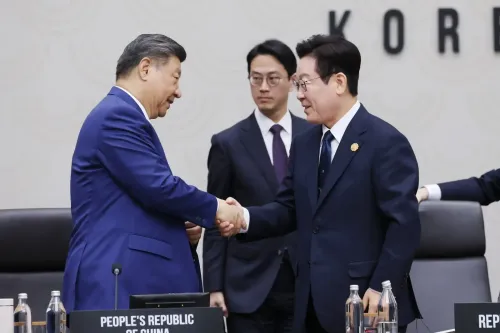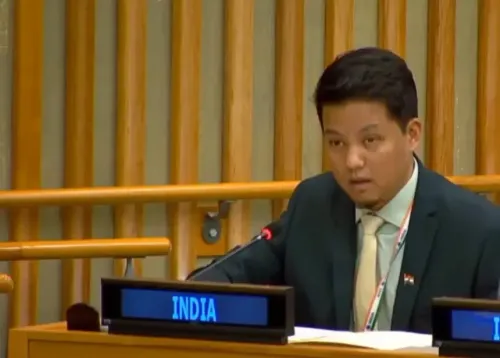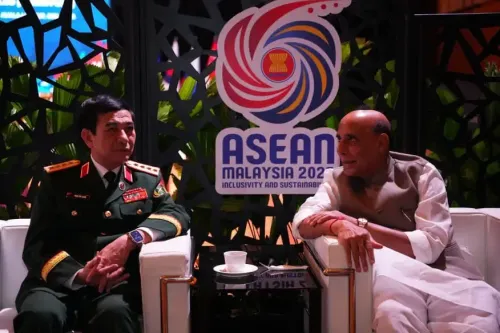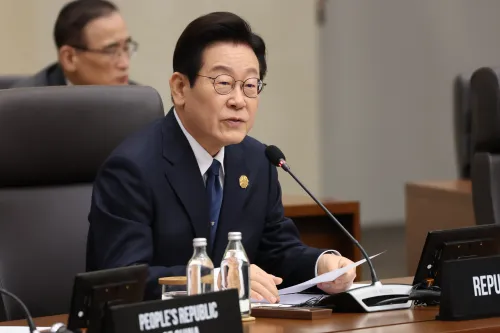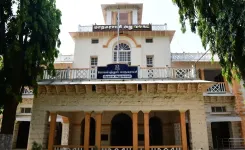South Korea: Court Grants Media Access for Ex-President Yoon's Second Trial Hearing
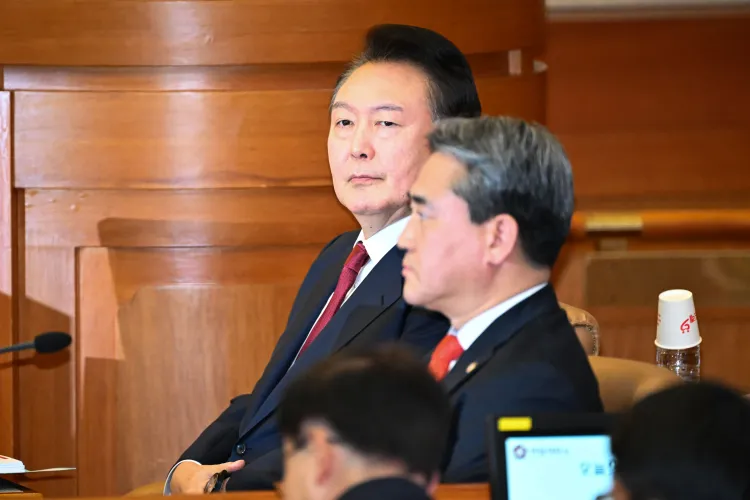
Synopsis
Key Takeaways
- Media access granted for Yoon's trial hearing.
- Public interest and legal rights considered.
- Yoon previously faced denied access during the first hearing.
- Historical precedent for media coverage in political trials.
- Yoon's presidency marked by political conflict.
Seoul, April 17 (NationPress) A South Korean court has permitted the media to capture photographs and videos of former South Korean President Yoon Suk Yeol's upcoming second criminal trial hearing concerning insurrection charges. The Seoul Central District Court made the announcement ahead of the hearing set for 10 a.m. on Monday.
In a statement, the court noted, "After requesting the defendant's perspective, we have decided to allow (filming) after thoroughly weighing the public's interest, the people's right to know, and the legal rights of the defendant and others involved."
During the initial hearing earlier this week, the court denied media access, which drew criticism suggesting that the court was showing bias towards Yoon.
The court clarified that it had received two media requests to film the hearing but turned them down due to the short notice given to seek the defendant's consent and complete other necessary procedures.
According to court regulations, a presiding judge can authorize filming in the courtroom with the defendant's agreement or when it serves the public interest. Reports indicate that Yoon's team was against the filming.
Historically, the media was allowed to document the first hearing of former President Park Geun-hye's corruption trial in 2017 and the initial hearing of former President Lee Myung-bak's corruption trial in the following year.
Additionally, the South Korean government officially set June 3 as the date for the next presidential election following the removal of former President Yoon Suk Yeol.
Yoon, who transitioned from a prominent prosecutor to the presidency in a brief span of three years, became the second president in the nation’s history to be formally dismissed from office, with his unexpected martial law proposal unsettling the country for months and intensifying political division.
With this ruling, Yoon, aged 64, follows the path of former President Park Geun-hye, who was removed in 2017 when the Constitutional Court upheld her impeachment linked to a corruption scandal.
Prior to assuming the presidency, Yoon began his career as a prosecutor in 1994, climbing the ranks to lead an investigation team into Park's corruption case that ultimately resulted in her impeachment and subsequent imprisonment.
In 2019, he was appointed as the nation's chief prosecutor under then-President Moon Jae-in but faced conflicts with the administration while overseeing investigations involving family members of ex-Justice Minister Cho Kuk.
Amid increasing pressure from the Moon administration, Yoon resigned in 2021, only to enter politics shortly after and secure the presidential election in 2022 as the candidate for the conservative People Power Party.
Yoon's presidency was marked by strife with an uncooperative National Assembly, primarily led by the main opposition Democratic Party (DP). He utilized his presidential veto power against 25 bills passed by the National Assembly.
Relations with the DP escalated dramatically in early December when the major opposition introduced motions to impeach the nation's top auditor and a senior prosecutor, culminating in Yoon declaring martial law on December 3, which ultimately led to his fall from grace.

